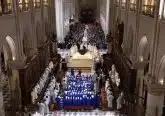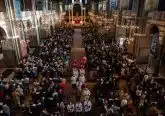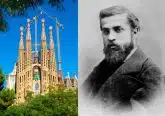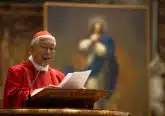Faith-science dialogue takes center stage at synod on evangelization
October 5, 2012
Catholic News Service
VATICAN CITY — The dialogue between faith and science will take center stage during the upcoming Synod of Bishops on the new evangelization, when a Nobel Prize-winning microbiologist addresses some 250 bishops from around the world.
Archbishop Nikola Eterovic, secretary-general of the Synod of Bishops, briefed journalists on plans for the Oct. 7-28 celebration of the 13th general assembly of the Synod of Bishops, which will focus on “The New Evangelization for the Transmission of the Christian Faith.”
The archbishop told reporters Oct. 5 that Swiss microbiologist Werner Arber, winner of the 1978 Nobel Prize in medicine/physiology, will address synod members as a special guest Oct. 12, offering “reflections on the relationship between science and faith.”
Arber, a Protestant and head of the Pontifical Academy of Sciences, “sees the relationship between faith and reason as Blessed John Paul II did: like two wings that bring people toward God,” the archbishop said, referring to the late pope’s 1998 encyclical, “Fides et Ratio” (“Faith and Reason”).
Answering a reporter’s question about whether the synod organizers had considered inviting agnostics or non-believers, as the Vatican has done at events intended to promote cultural dialogue, Archbishop Eterovic said no, because the synod’s goal is revitalizing and strengthening the faith of those who have been baptized.
Space in the synod hall is limited, he added, and organizers preferred to concentrate on how “a renewed dynamism in the church” can attract those who have “strayed” from God and help them “rediscover the joy of faith.”
“The first step in the new evangelization is conversion,” he said.
“In order to proclaim the Gospel to the world, the church must first evangelize itself, purify itself so as to be authentic, because an evangelizer who doesn’t live what he preaches can create a negative effect,” he said.
Charitable work, especially helping the poor, the marginalized and those with disabilities, is often “more convincing than lots of theological reflections, which are also necessary,” he said.
Two other special guests at the assembly will be Lamar Vest, president of the non-denominational American Bible Society; and Brother Alois Leser, prior of the ecumenical monastic community of Taize, France.
A broad presence of high-level representatives from Christian communities not in full communion with the Catholic Church “will bring a notable ecumenical contribution to the synod,” Archbishop Eterovic said.
“The Catholic Church cannot carry out this immense, extensive task of evangelization by itself,” which is why it wants “to collaborate sincerely and positively with other churches and Christian communities,” he said.
Pope Benedict XVI has invited Anglican Archbishop Rowan Williams of Canterbury to give a major address Oct. 10, when he will speak about the challenges of the new evangelization from the point of view of the Anglican community. Orthodox Ecumenical Patriarch Bartholomew of Constantinople will attend the synod and take part in the Oct. 11 Mass marking the anniversary of the opening of the Second Vatican Council and the start of the Year of Faith.
Non-Catholic Christians have spoken at many previous synods, and more than a dozen such “fraternal delegates” will attend this time. They include: Russian Orthodox Bishop Hilarion of Vienna and Austria; African Methodist Episcopal Bishop Sarah Davis; Timothy George, dean of Beeson Divinity School at Samford University, a Baptist college in Birmingham, Ala.; and Geoff Tunnicliffe, secretary general for the New York-based World Evangelical Alliance.
At the synod briefing, Jesuit Father Federico Lombardi, Vatican spokesman, said 12 of the 69 living bishops who attended Vatican II had confirmed their presence at the Oct. 11 Mass.
They include 79-year-old Nigerian Cardinal Francis Arinze and 85-year-old retired Bishop William J. McNaughton — a U.S. Maryknoll missionary who headed the South Korean Diocese of Inchon for 40 years.













